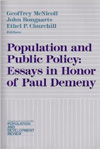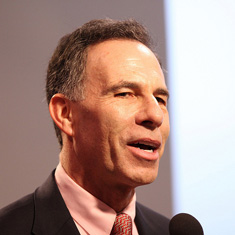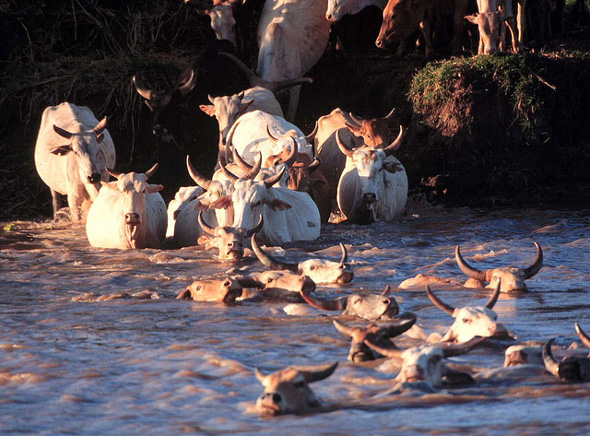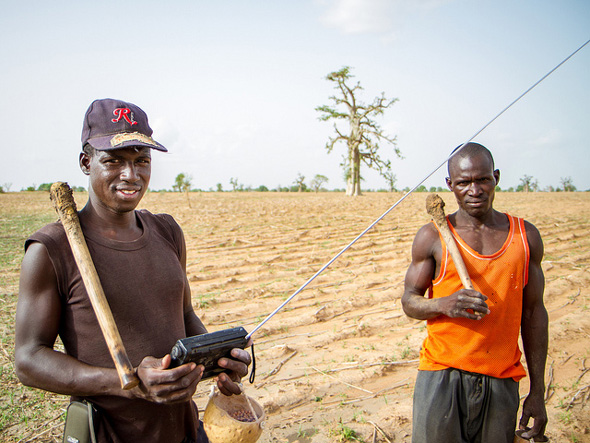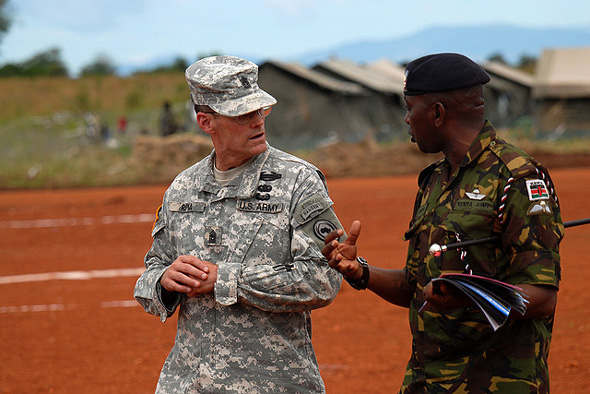-
Demography and Political-Socioeconomic Change
›
In “On Demographic and Democratic Transitions,” published in the February edition of Population and Development Review, author Tim Dyson postulates that the so-called “demographic transition” – a two-step process in which diminishing mortality rates are followed by decreases in total fertility – is an important predictor of a society’s transition from autocracy to democracy. Specifically, Dyson suggests that the population surge resulting from a decline in mortality may tend to destabilize pre-democratic regimes, while a subsequent drop in fertility rates may empower women and raise the median age of a population, thus paving the way for democracy to emerge. Dyson demonstrates a statistically significant correlation between population aging and inclination toward democracy, echoing the work of New Security Beat contributor, Richard Cincotta.
-
‘Dialogue’ Interviews Caryle Murphy & John Sullivan: Saudi Arabia’s Demography & 2013’s Big Environment Stories
›Dialogue at the Wilson Center tackled demography and the environment last week, interviewing Pulitzer Prize-winning journalist and former Wilson Center public policy scholar Caryle Murphy about her new book, A Kingdom’s Future: Saudi Arabia Through the Eyes of Its Twentysomethings, followed by John Sullivan, director of the Environment and Health and Safety News Division for Bloomberg BNA, on the most important energy and environmental issues of 2013.
-
After the Arab Spring, Challenges Intensify for Women in the Middle East and North Africa
›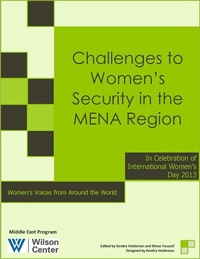
Excerpted below is the introduction, by Haleh Esfandiari, to Challenges to Women’s Security in the MENA Region. The full report is available for download from the Wilson Center’s Middle East Program.
On the occasion of International Women’s Day 2013, the Middle East Program at the Wilson Center invited a cross-section of women activists, politicians, academics, and entrepreneurs to give us their views on the challenges women face to their security. This publication, “Challenges to Women’s Security in the MENA Region,” includes pieces from 42 women from 20 countries, including the United States, Malaysia, Indonesia, and countries in the Middle East and North Africa (MENA) shared with us their concerns, disappointments, and hopes for women in the region.
-
Jack Goldstone Discusses Future Demographic Trends: The Old, the Young, and the Urban
›
In this podcast, Jack Goldstone of George Mason University discusses the world’s demographic stresses in the coming years. In parallel to a growing trend of population aging in developed countries, much of the world will remain young, growing, and urbanizing, he said. The choices these growing countries make over the next few decades will have reverberating effects for the rest of the world, from conflict potential to the spread of stable democracies.
-
Water and Land Conflict in Kenya in the Wake of Climate Change
›
Earlier this month, there was a flurry of stories about brutal mass killings in clashes between the Pokomo and Orma communities over water and land in southeast Kenya’s Tana River County. The Kenyan media reported that about 30 people, including eight security personnel, had been killed and scores wounded, and reports on the death toll since last month are more than 100.
-
António Guterres, The New York Times
Why Mali Matters
›September 11, 2012 // By Wilson Center Staff
The original version of this op-ed, by António Guterres, appeared in The New York Times.
For many people, Timbuktu has long represented the essence of remoteness: a mythical, faraway place located on the boundaries of our collective consciousness. But like many of the myths associated with colonialism, the reality is very different.
-
Should AFRICOM Leave Development to the Professionals?
›August 30, 2012 // By Schuyler Null
Since its inception, there’s been a great deal of prognostication about the role and goals of the U.S. military’s newest regional command, AFRICOM. The smallest of the six regional commands, in terms of staff and budget, its objectives have included traditional roles like building local military capacities, confronting transnational threats (terrorism, weapons of mass destruction, small arms, drugs, etc.), and helping to mitigate violent conflicts, but also more development-oriented goals, like fighting HIV/AIDs and malaria, “strengthening democratic principles,” and “fostering the conditions that lead to a peaceful, stable, and economically strong Africa.”
-
Coming of Age: Reason for Optimism in Burma’s Turn Towards Democracy
›
Burma (also known as Myanmar), a country plagued by internal political turmoil and direct or tacit military rule since 1962, had its first general elections in 50 years in 2010 and long-time jailed opposition leader Aung San Suu Kyi won a seat in the National Assembly, but questions remain as to how much power the military is willing to cede. Demography provides reason for hope that this turn towards democracy is more than temporary.
Showing posts from category democracy and governance.


